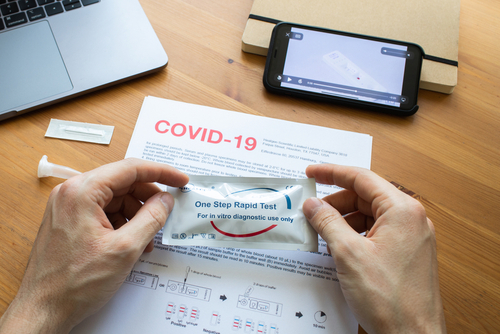
While many antibody tests today fail to identify neutralizing antibodies, Dr. Benjamin Larimer, a researcher at the University of Alabama at Birmingham (UAB), has developed a diagnostic capable of accurately and quickly identifying these antibodies and showing people’s potential immunity to COVID-19.
Neutralizing antibodies are a response system within the body that blocks a virus from infecting cells. Their use has been of particular interest to scientists as they seek out methods of halting the spread of the COVID-19 pandemic. However, antibodies can only be traditionally measured at a high level of accuracy through complex and lengthy lab tests not made available to the general public.
“The goal of every vaccine is to get the body to produce antibodies, which serve as a first line of defense against the virus,” Larimer said. “Tests that specifically detect these antibodies can be used to measure whether a vaccine works, and possibly predict how long its protection will last.”
Larimer notes that existing antibody tests really on broad approaches for detection, making them susceptible to mistakes, such as misdiagnosing antibodies for viruses. This creates the false-positive results that have dogged many COVID-19 tests over the course of the U.S. response to the pandemic.
Instead, Larimer’s test can specifically recognize even small amounts of antibodies accurately. This was achieved by breaking down the COVID-19 virus into small pieces to identify exactly where antibodies attach to the virus. The test was able to identify 20 percent more positive cases than the current top clinical antibody test.
While the United States is moving into the vaccination stage of its response, Larimer noted that antibody testing will help identify efficacy and determine whether people are protected against COVID-19. This is particularly important since, even with high efficacy rates, distribution is a slow, ongoing process — and even when finished, will leave potentially millions unprotected. Thus, an inexpensive, simple in-home capable means of monitoring could provide long-term benefits to the general public.
The UAB Research Foundation has moved on the technology, filing a provisional patent application for Larimer’s diagnostic.




